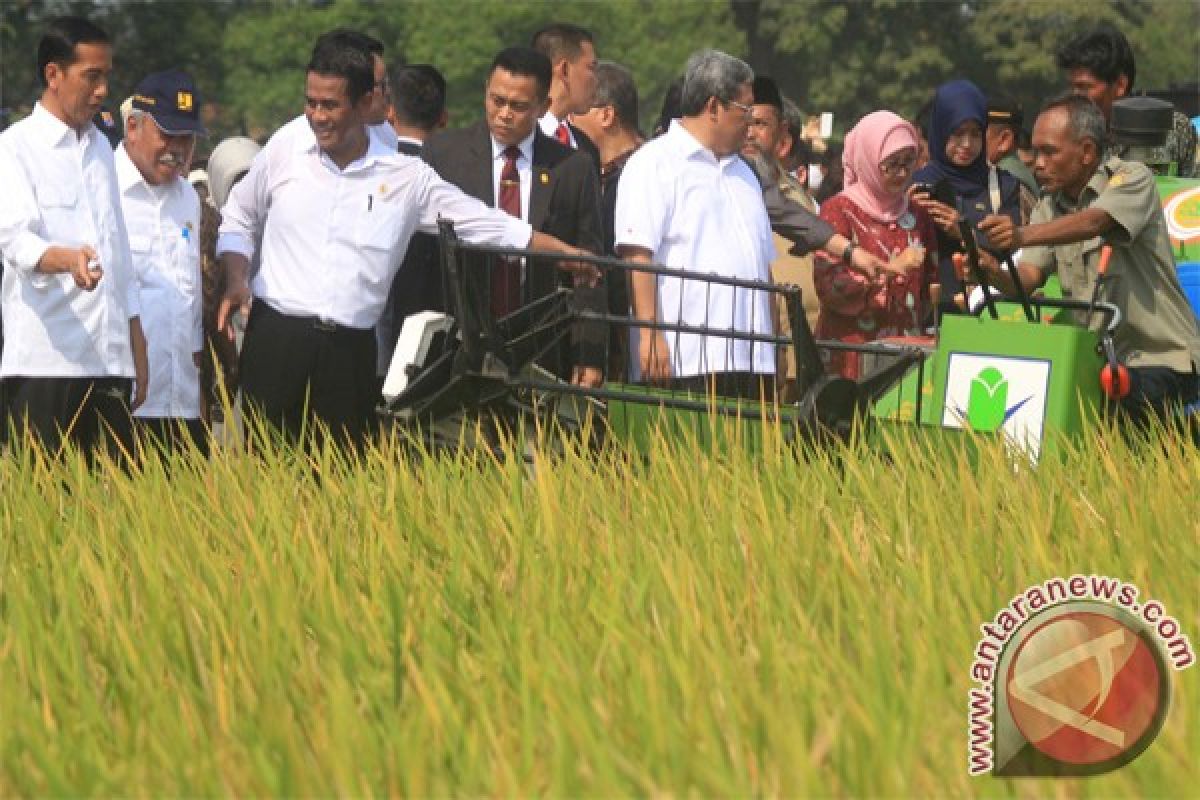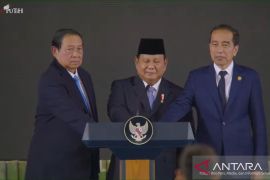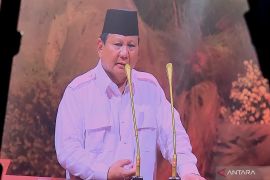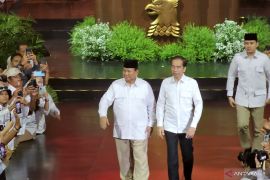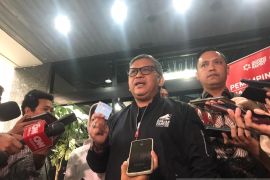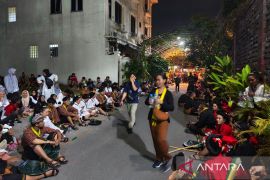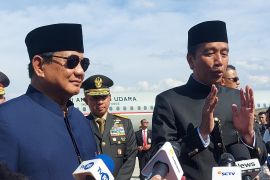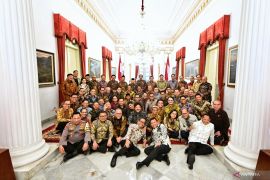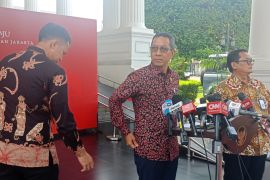Within three years, we must be self-sufficient in rice and stop imports."Jakarta (ANTARA News) - The government has predicted that Indonesia will achieve its rice self-sufficiency target this year, much earlier than President Joko Widodo (Jokowi)s former goal of reaching this milestone in the next three years.
"We are confident that we will achieve rice self-sufficiency this year. Recalculations revealed that the national need for rice is only 28 million tons per annum. So we will be able to achieve the target this year," Vice President M. Jusuf Kalla said here on Friday (20/3).
Calculations made by the Ministry of Agriculture had found that the per capita consumption of rice in Indonesia is 124 kilograms per annum. So the government based its rice production target on per capita consumption of 124 kilograms.
However, following the joint assessment conducted by the Central Bureau of Statistics (BPS) and the Ministry of Trade, it was found that Indonesias per capita consumption of rice is only 114 kilograms per annum.
So based on this figure of 114 kilograms, Indonesia will be able to become self-sufficient in rice production this year, much before the three-year target earlier set by President Joko Widodo.
"Within three years, we must be self-sufficient in rice and stop imports," Jokowi, as the president is popularly called, had said after participating in a rice harvest in Barang Palier in the district of Pinrang, South Sulawesi, last November.
National Development Planning Minister/Head of the National Development Planning Board (Bappenas) Andrinof Chaniago stated that by taking per capita rice consumption of 114 kilograms into account, the total annual rice consumption of Indonesians stood at 28 million tons.
He added that with the present production capacity, the countrys rice self-sufficiency target was achievable.
"We are optimistic that Indonesia will have surplus production. However, we will conduct further verification," Chaniago affirmed.
The government will officially revise its rice production target after obtaining the final figure on Indonesias per capita consumption of rice.
"So we have to study the matter further and revise the countrys real production target. It will be related to the acreage of rice fields," Chief Economic Minister Sofyan Djalil stated at the vice presidents office on Friday.
The government, on Friday, made adjustment to its data on rice per capita consumption by comparing information from several ministries and state institutions, such as the Ministry of Agriculture, Ministry of Trade and the BPS.
"We made the adjustment and measured peoples average per capita consumption of rice," Kalla noted.
The vice president added that the comparison was made based on data from a number of ministries and institutions, to find the countrys average per capita consumption of rice.
Furthermore, the optimism of achieving rice self-reliance this year was also expressed by Dr. Soemitro Arintadisastra, an expert on agricultural affairs from Riau province.
He believes that Indonesia will achieve rice self-sufficiency much before 2017, the target set by the government. It could even achieve it this year, he said.
"I am confident that in April, May and June, the national rice production will exceed domestic need," Arintadisastra told the press while visiting an Independent Village Agricultural Training Center (P4S) in Kubang Nyata village, Kampar district, last week.
He pointed out that there were many factors that supported the countrys efforts towards becoming self-sufficient in rice, which were able to aid Indonesia to achieve this target sooner.
One of the factors, he argued, was the governments decision to change the pattern in which rice was planted so farmers in rice producing regions, such as those in Kampar district and in most districts in Java, could be more productive.
"They planted rice in January when the rainy season was over. This can earn farmers abundant rice yields in April, which can meet the national need for rice until May and June," Arintadisastra explained.
Over the last 50 years, he observed, farmers in the country practiced wrong rice planting patterns. They often planted the crop either before or after the monsoon at the end of the year, which provided bad yields.
As a result, most farmers suffered losses because during the planting season, they were affected by floods. It rained even during the harvest season, due to which the crops could not be dried completely.
Bad, unhulled rice produces bad quality rice that can be sold only at low prices. Farmers cannot cover their capital and maintenance costs by selling their produce at such prices.
"Rice farmers in various parts of the country experienced these conditions, as a result of which Indonesia found it difficult to achieve self-sufficiency," the expert pointed out.
This year, however, the pattern and season of planting rice was altered. Earlier, it was planted in the middle and at the end of the year, but this year, it was carried out at the beginning of the year and after the peak of the rainy season.
Moreover, President Jokowi said early this month that the government will design a cycle for rice planting and harvesting to avoid stocking excessive amounts of the commodity during simultaneous harvests.
"Arranged cycles of planting and harvesting will also increase farmers yield of unhusked rice. If the cycles are not designed, the price will drop when rice is harvested simultaneously and stocks will pile up. So we will frame a cycle for rice planting and harvesting," the president stated while observing a maize plantation in Suku village, Ponorogo, East Java, on March 6.
The head of state noted that with high productivity, rice stocks will always be adequate and the country will not need to import the commodity.
"We should strive to increase productivity. For example, a one-hectare rice field now produces 5 tons of rice. We should find ways to increase the output to 9 to 10 tons, as shown in Demak district. As for the price, it will compete with those in other countries. If rice abroad is cheap, our rice should also be cheap. The key point in this case is increased productivity," Jokowi explained.
(T.A014/INE/KR-BSR)
Reporter: Andi Abdussalam
Editor: Priyambodo RH
Copyright © ANTARA 2015
